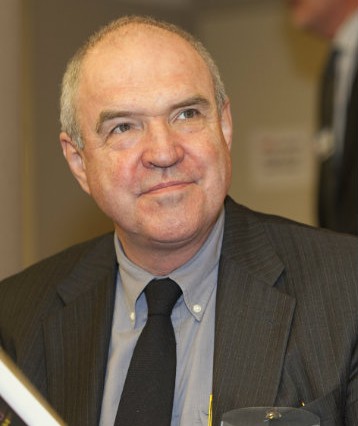Introduction
Witold Rybczynski (b. 1943) is a Canadian-American architect and writer. After teaching for more than twenty years at McGill University in Montreal, he currently serves as Emeritus Professor of Urbanism at the University of Pennsylvania. He is the author of more than 300 articles and eighteen books on cities, housing, architecture, and technology. This selection is taken from his 1991 book, Waiting for the Weekend, in which Rybczynski explores the history and origins of the workweek and the boundary between work and leisure.
How does Rybczynski’s account of the changing meanings of both work and recreation affect your understanding of Labor Day? Can this holiday today, and the extra three-day weekend it offers us, still celebrate the importance and dignity of work and the American worker?
Recreations like tennis and sailing are hardly new, but before the arrival of the weekend they were for most people chiefly seasonal activities. Once a year, when vacation time came around, tennis rackets were removed from the back of the cupboard, swimwear was taken out of mothballs, or skis were dusted off. The accent was less on technique than on having a good time. It was like playing Monopoly at the summer cottage: no one remembered all the rules, but everyone could still enjoy the game. Now the availability of free time every weekend has changed this casual attitude. The very frequency of weekend recreations allows continual participation and improvement, which encourages the development of proficiency and skill.
The desire to do something well, whether it is sailing a boat or building a boat, reflects a need that was previously met in the workplace. Competence was shown on the job—holidays were for messing around. Now the situation is reversed. Technology has removed craft from most occupations. This is true in assembly-line jobs, where almost no training or experience, hence no skill, is required, as well as in most service positions (store clerks, fast-food attendants), where the only talent required is to smile and say “Have a good day.” But it’s also true in such skill-dependent work as house construction, where the majority of parts come ready-made from the factory and the carpenter merely assembles them, or automobile repair, which consists largely in replacing one throwaway part with another. Nor is the reduction of skills limited to manual work. Memory, once the prerequisite skill of the white-collar worker, has been rendered superfluous by computers; teachers, who once needed dramatic skills, now depend on mechanical aids; in politics, oratory has been killed by the thirty-second sound bite.
Hence an unexpected development in the history of leisure: for many people weekend free time has become not a chance to escape work but a chance to create work that is more meaningful—to work at recreation—in order to realize the personal satisfactions that the workplace no longer offers.
Rybczynski, Witold. From Waiting for the Weekend. New York: Viking, 1991. Copyright © by Witold Rybczynski. Reprinted by permission of the author.
Return to The Meaning of Labor Day.



Post a Comment